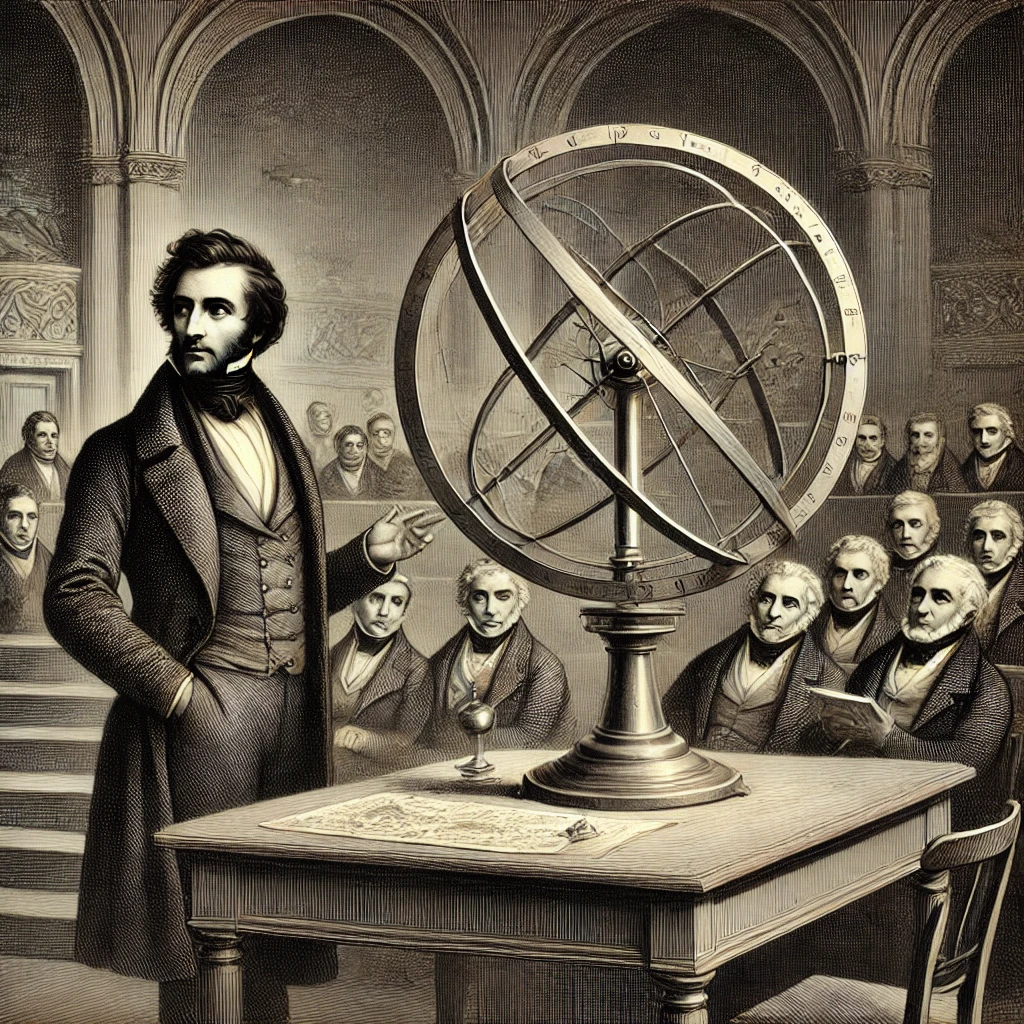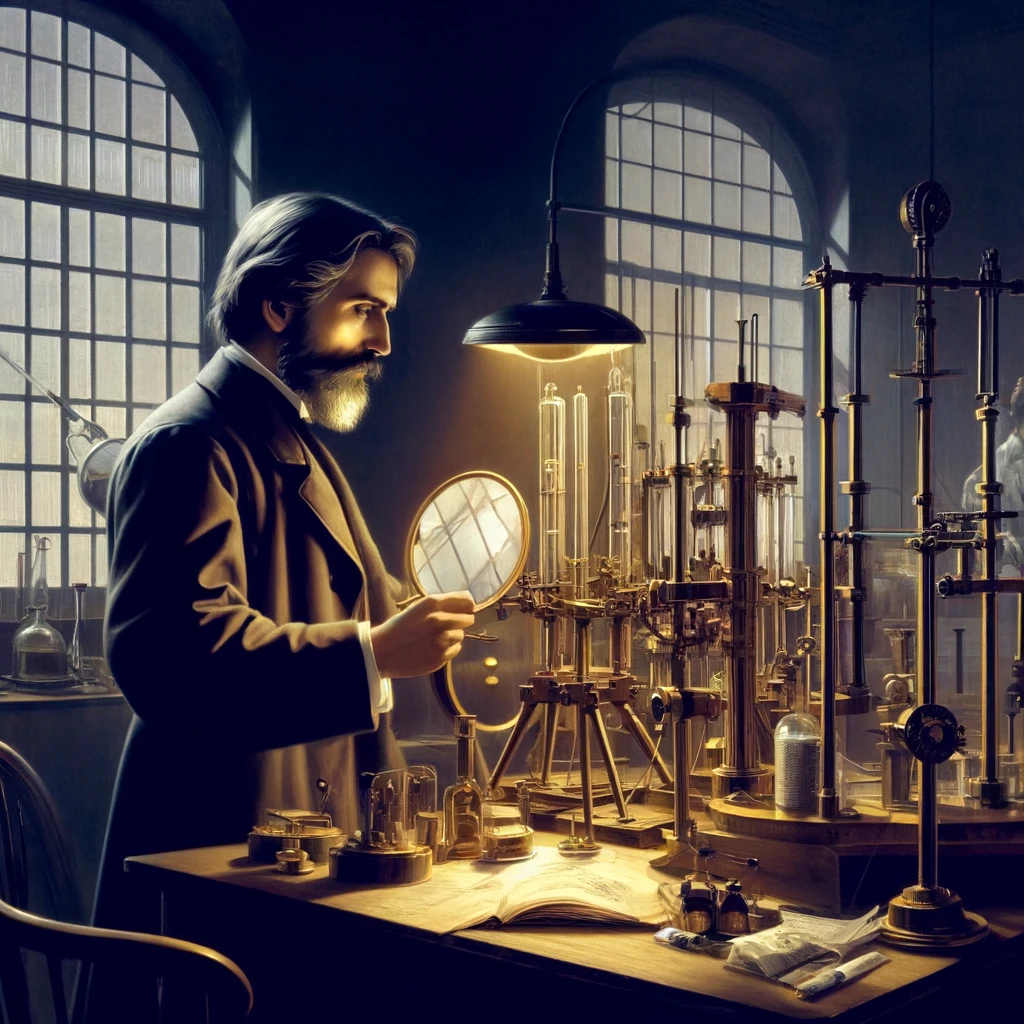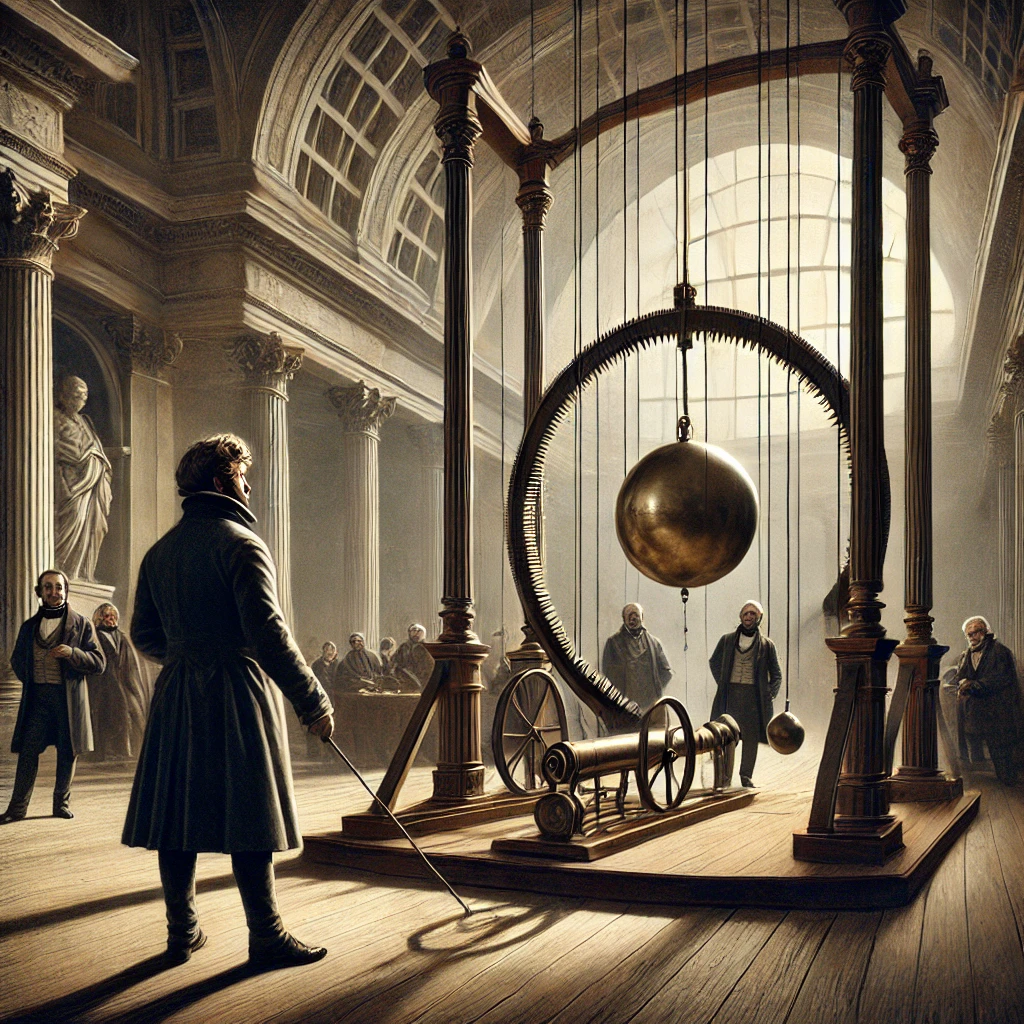Jean-Bernard-Léon Foucault, born on September 18, 1819, was a distinguished French physicist whose innovative work transformed our understanding of light and Earth’s motion. Foucault’s contributions were pivotal in advancing experimental physics, particularly through his precise measurements of the speed of light and his groundbreaking demonstration of Earth’s rotation. His work not only expanded the boundaries of scientific knowledge but also established new standards for experimental accuracy.
Early Life and Education
Jean-Bernard-Léon Foucault was born in Paris, France, into a family that fostered intellectual curiosity and supported his educational pursuits. From a young age, Foucault exhibited a keen interest in science and mathematics, qualities that were further nurtured during his studies at the Collège de France and the École Polytechnique. His early exposure to scientific research and his engagement with leading scientists of the time laid a solid foundation for his future contributions to physics.
Foucault’s educational journey was marked by a focus on experimental physics, which would later become the hallmark of his career. His rigorous approach to experimentation and his commitment to precision were evident in his early work, setting the stage for his later achievements in measuring the speed of light and demonstrating Earth’s rotation.

Measuring the Speed of Light
One of Foucault’s most significant achievements was his development of a technique to measure the speed of light with extraordinary accuracy. Prior to Foucault’s innovations, the speed of light had been estimated using various indirect methods, resulting in imprecise values. Foucault’s approach involved using a rapidly rotating mirror system to measure the time it took for light to travel between mirrors and return.
This technique allowed Foucault to achieve unprecedented precision in his measurements. By calculating the time delay of light traveling through a rotating mirror system, he refined the value of the speed of light and provided a more accurate foundation for subsequent research in optics and electromagnetism. Foucault’s work was instrumental in advancing the field of optics and laid the groundwork for future developments in the study of light and electromagnetic theory.
Experimental Proof of Earth’s Rotation
In addition to his work on light measurement, Foucault is renowned for his experimental demonstration of Earth’s rotation. Before Foucault’s experiments, the concept of Earth’s rotation was largely theoretical, and empirical evidence was lacking. Foucault’s famous pendulum experiment provided the crucial proof needed to confirm this fundamental aspect of Earth’s motion.
Foucault’s pendulum consisted of a large, freely swinging pendulum that exhibited a gradual shift in its plane of swing due to Earth’s rotation. This observable effect provided tangible evidence of Earth’s rotation and allowed both scientists and the public to visualize this important concept. The Foucault Pendulum became an iconic demonstration in science museums and educational institutions, highlighting the dynamic nature of our planet.
Impact on Scientific Understanding
Foucault’s contributions had a profound impact on scientific understanding and the development of modern physics. His precise measurements of the speed of light contributed to the advancement of optics and electromagnetic theory. The accuracy of his work provided a crucial foundation for subsequent research, including Albert Einstein’s theory of relativity, which revolutionized our understanding of space and time.
The Foucault Pendulum, meanwhile, served as a powerful visual tool for illustrating Earth’s rotation and engaged the public with fundamental concepts in physics. Foucault’s experimental proof of Earth’s rotation helped to bridge the gap between theoretical concepts and empirical evidence, making complex scientific ideas more accessible.

Influence on Modern Physics
The techniques developed by Foucault have continued to influence various areas of modern physics. His methods for measuring the speed of light laid the groundwork for advancements in optics, telecommunications, and laser technology. The precision of Foucault’s measurements remains relevant in contemporary research and applications involving light and electromagnetic phenomena.
The Foucault Pendulum remains a popular demonstration in educational settings, helping to engage students with concepts in physics and astronomy. Its continued use underscores the lasting significance of Foucault’s contributions and their impact on both scientific education and public understanding.
Challenges and Innovations
Foucault faced numerous challenges in his experiments, including the need for precision and the development of innovative techniques. His ability to overcome these obstacles and achieve accurate measurements highlights his ingenuity and dedication to scientific inquiry. Foucault’s work required meticulous attention to detail and creative problem-solving, demonstrating the importance of persistence in scientific research.
The development of Foucault’s techniques required overcoming technical challenges and refining experimental methods. His success in these endeavors exemplifies the impact of rigorous experimentation and innovative thinking in advancing scientific knowledge.

Legacy and Recognition
Jean-Bernard-Léon Foucault’s legacy is reflected in the continued relevance of his contributions to physics. His precise measurements of the speed of light and his experimental demonstration of Earth’s rotation have had a lasting impact on scientific understanding and technological development. Foucault’s work has been celebrated and recognized within the scientific community, and his techniques continue to be studied and applied in various fields.
Foucault’s dedication to advancing knowledge through empirical evidence and his innovative approach to solving scientific problems remain a source of inspiration for scientists and researchers worldwide. His contributions have shaped the course of modern physics and have left an enduring mark on the field.
Lasting Impact
Jean-Bernard-Léon Foucault’s achievements in measuring the speed of light and demonstrating Earth’s rotation represent significant milestones in the history of physics. His work has not only advanced scientific understanding but has also influenced technological developments and educational practices. The legacy of Foucault’s contributions continues to be celebrated and studied, reflecting his enduring impact on science and his commitment to the pursuit of knowledge.
In conclusion, Jean-Bernard-Léon Foucault’s pioneering work in experimental physics has had a profound and lasting influence on our understanding of light and Earth’s motion. His innovative techniques and rigorous approach to experimentation have set new standards for scientific inquiry and have shaped the course of modern physics. Foucault’s contributions remain a testament to the power of empirical research and the pursuit of scientific excellence.
